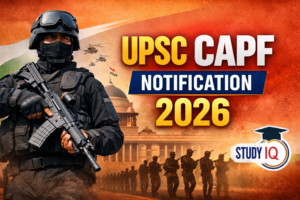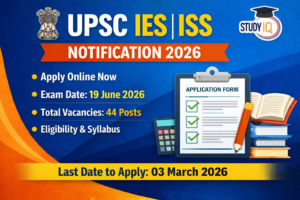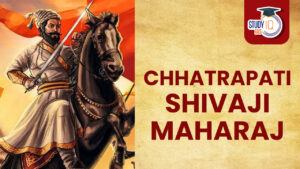Q2(a). Carl von Clausewitz once said, “War is diplomacy by other means.” Critically analyse the above statement in the present context of contemporary geo-political conflict. (Answer in 150 words) – 10 marks.
| Approach: Introduce with the meaning of the quote “War is a diplomacy by other means.” In the main body write the argument taking different instances of the geo-political conflicts like Russia- Ukraine conflict.Provide the counter arguments about it as well. Conclude with the balanced approach about war. |
The statement “War is a continuation of diplomacy by other means” is a famous observation by the Prussian military theorist Carl von Clausewitz in his work On War. It means that war is not an independent act but an instrument of policy, a way to achieve political goals when diplomatic or other non-violent methods have failed.
Reasons for seeing war as an extension of diplomacy
War is seen as an extension of diplomacy today as states pursue national interests, signal deterrence, and secure resources when negotiations fail. Hybrid warfare, domestic politics, and weak global institutions reinforce this trend. Yet, it reflects diplomacy’s failure, raising ethical concerns over suffering, justice, and global stability.
War extends diplomacy when talks fail, as seen in Russia–Ukraine (strategic depth), Israel–Hamas (collapsed peace), and India’s surgical strikes (deterrence).
War is not justified to be seen as an extension of diplomacy
- Human Suffering: While war may serve political goals, it entails human suffering, destruction, and long-term instability that often negate diplomatic gains.
- E.g., Russia–Ukraine war has created the largest refugee crisis in Europe since WWII.
- Erodes Moral Legitimacy: In an interconnected, globalized world, war undermines trust and damages moral legitimacy.
- E.g. Deontological ethics says that Actions that harm innocents can never be morally justified, even if politically useful.
- Disproportionate Costs: Even if war achieves short-term goals, the long-term costs (economic loss, instability, terrorism) outweigh benefits. According to utilitarian view war brings more harm than good.
- E.g., Afghanistan after the US invasion—20 years of war, but no lasting peace.
- Utilitarian Ethics: War rarely maximizes collective welfare; harm outweighs benefits. Example: Afghanistan war caused instability and prolonged suffering.
- Deontological Ethics (Kant): Humans must never be treated as means to political ends. Example: Civilian deaths in Gaza and Ukraine violate human dignity.
- Virtue Ethics: War erodes virtues, breeds hatred, cruelty, and vengeance. Example: Middle East conflicts perpetuate cycles of revenge.
- Gandhian Ethics: War, even as diplomacy, corrupts ends by violent means. True diplomacy must be rooted in dialogue, truth, and non-violence.
- Global Justice: Wars deepen inequalities, displace populations, and erode moral legitimacy of states.
- Hybrid warfare: Though less bloody, hybrid tactics raise ethical questions about fairness, civilian vulnerability, and justice in war. US–China tech conflict or Russia’s cyber operations against Ukraine.
- Ethical norms, human rights, and global governance challenge the idea that war is a legitimate diplomatic tool.
Diplomacy can be improved by strengthening international law, empowering institutions like the UN, and adopting preventive dialogue. Building trust through transparency, economic cooperation, and cultural ties reduces conflict incentives. Rooting diplomacy in Gandhian ethics of truth and non-violence ensures peace, making war unnecessary as a political tool.
Clausewitz’s dictum reflects geopolitical realism, but war shows diplomacy’s failure. Modern conflicts may secure short-term goals, yet they harm dignity, justice, and peace. True stability needs non-violent diplomacy, strong international law, and Gandhian ethical principles.

 UPSC CAPF Notification 2026 Out – 349 ...
UPSC CAPF Notification 2026 Out – 349 ...
 UPSC IES ISS Notification 2026 Out: Appl...
UPSC IES ISS Notification 2026 Out: Appl...
 Chhatrapati Shivaji Maharaj Jayanti 2026...
Chhatrapati Shivaji Maharaj Jayanti 2026...




















